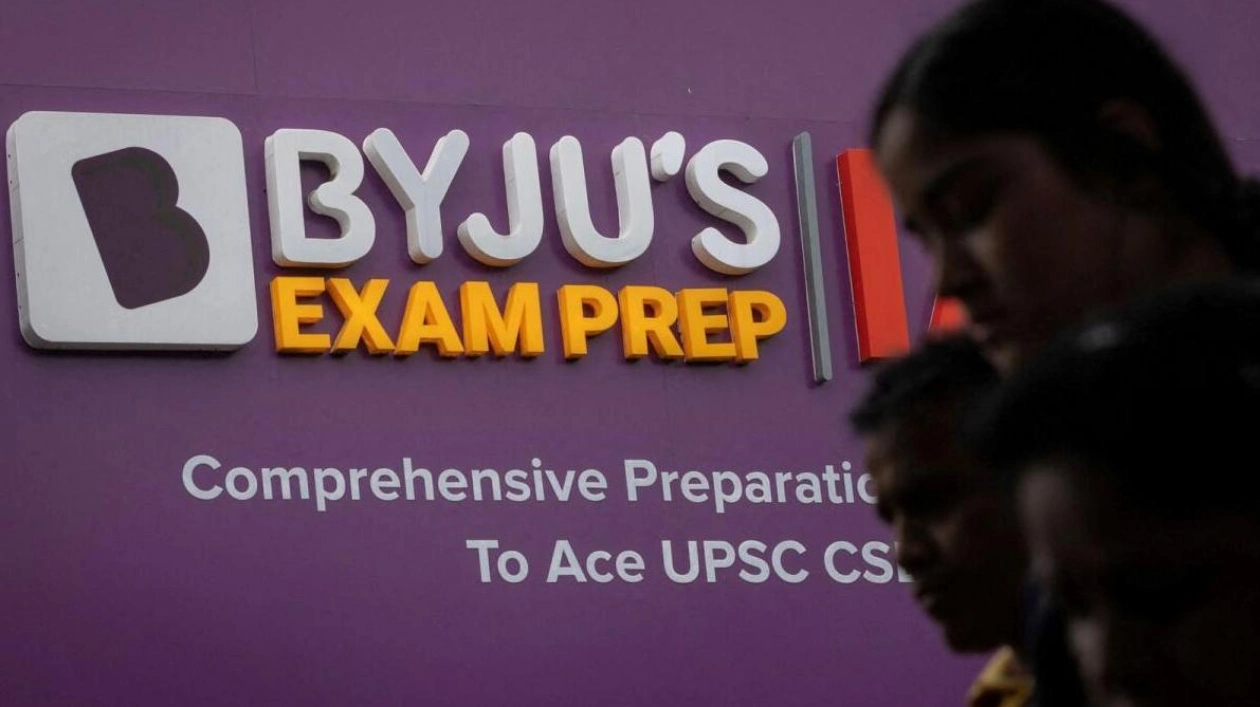The financial distress of Indian edtech giant Byju's is poised to become the most significant disruption in the once-celebrated startup landscape, sparking a protracted struggle for thousands of anxious employees to recoup their unpaid wages and safeguard their professional futures. Once a favorite among international investors, with a valuation of $22 billion in 2022, Byju's gained popularity by providing online educational courses during the Covid-19 crisis but now finds itself entangled in a dispute with US creditors demanding $1 billion in unpaid obligations. Interviews conducted by Reuters with numerous employees, parents, and an analysis of WhatsApp conversations reveal an escalating sense of urgency as individuals contemplate aggressive actions against the company, whose board has been suspended and assets frozen.
"Many of us, including myself, have ceased teaching because it no longer makes sense to work for free," stated Sukirti Mishra, 29, during a conference call organized by approximately 60 employees from Byju's subsidiary WhiteHat Jr. Mishra, who previously earned $1,200 monthly teaching math, now faces parental backlash after suspending classes for their children, as detailed in the call attended by Reuters. She also expressed her own financial hardships, struggling to cover medical expenses and loan repayments due to months of unpaid wages.
Byju's, currently contesting the insolvency proceedings in court in an attempt to regain control, has not addressed inquiries from Reuters. In court filings, the company has cautioned about a potential complete cessation of services as the insolvency process advances. The Indian Supreme Court recently rejected Byju's plea to halt the ongoing insolvency proceedings, which were initiated due to legal challenges from the company's US lenders. Following three months without compensation, a significant portion of Byju's 27,000-strong workforce is contemplating public demonstrations or legal actions. Approximately 3,000 employees have already submitted claims, supported by bank statements, according to a senior executive who requested anonymity.
"Rest assured, once we retake control, your salaries will be promptly issued," Byju Raveendran, the founder and former billionaire, assured employees in a recent internal memo obtained by Reuters. However, the road ahead for employees remains uncertain, with potential new buyers or asset liquidation taking months to materialize, and legal provisions offering no certainty of full compensation. Byju's, established in 2011, has faced multiple challenges in recent times, ranging from executive departures and criticisms over delayed financial reporting to an auditor's resignation. Investor Prosus has publicly accused Raveendran of mismanagement, allegations he has refuted.
Should the insolvency process persist, it would mark the largest such case among Indian tech startups, a sector that has attracted major investors like SoftBank and Tiger Global. Around 280 Byju's employees have approached a state grievance committee, demanding action on unpaid salaries and accusing the company of failing to remit deducted taxes to the government. "We are gravely concerned about the company's financial health... we fear the company may be preparing to cease operations without resolving our dues," they stated in an August 5 letter. Reuters journalists were invited to three WhatsApp groups totaling over 2,200 members, including affected employees and parents, all actively seeking to recover their funds. These groups are deliberating on potential strategies, weighing the effectiveness of social media campaigns, public protests, or legal measures.
Byju's, which operates in 21 countries and serves 150 million students, typically charges between $100 and $300 for its programs, many of which are financed through loans. To garner attention, parents, primarily concerned with reclaiming their payments, have considered involving former brand ambassadors like soccer star Lionel Messi on social media. "We should post on Instagram," suggested a participant in the parents' WhatsApp group. "We can tag them and reveal the reality." Despite the current challenges, Raveendran remains optimistic. "Our company is on the brink of reversing the negative business trends that started two years ago, exhibiting clear signs of recovery," he informed staff in a memo on Tuesday.






